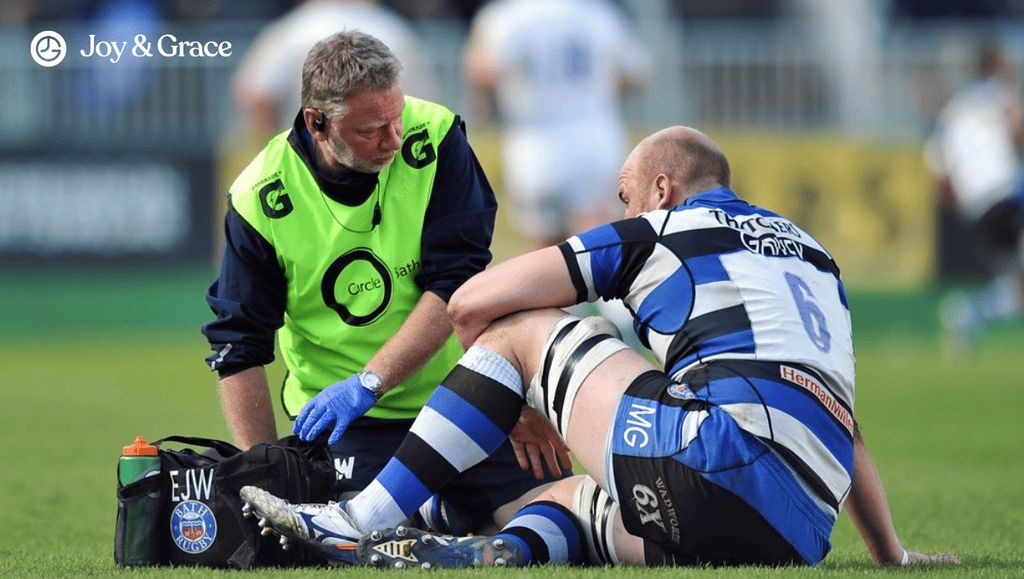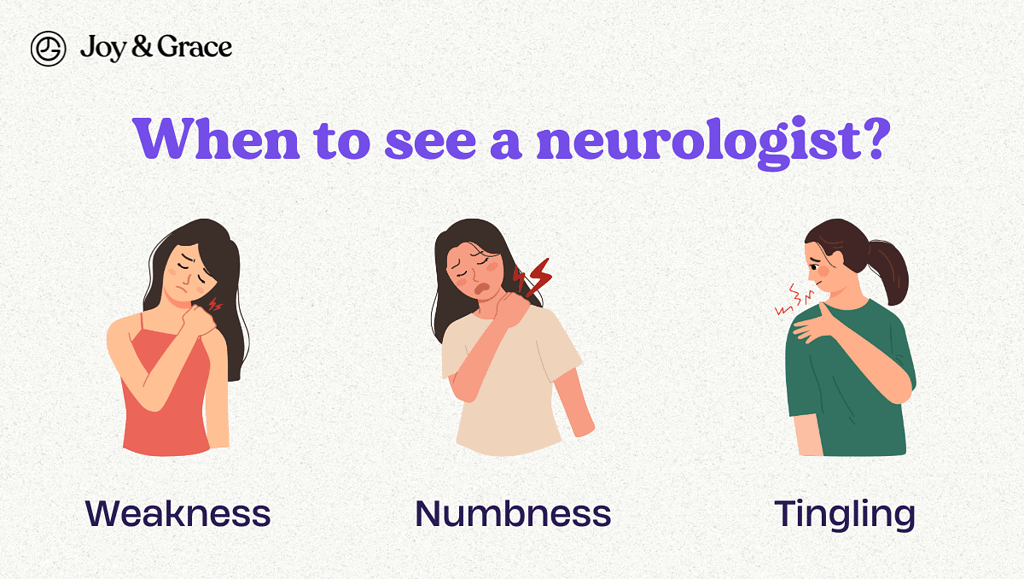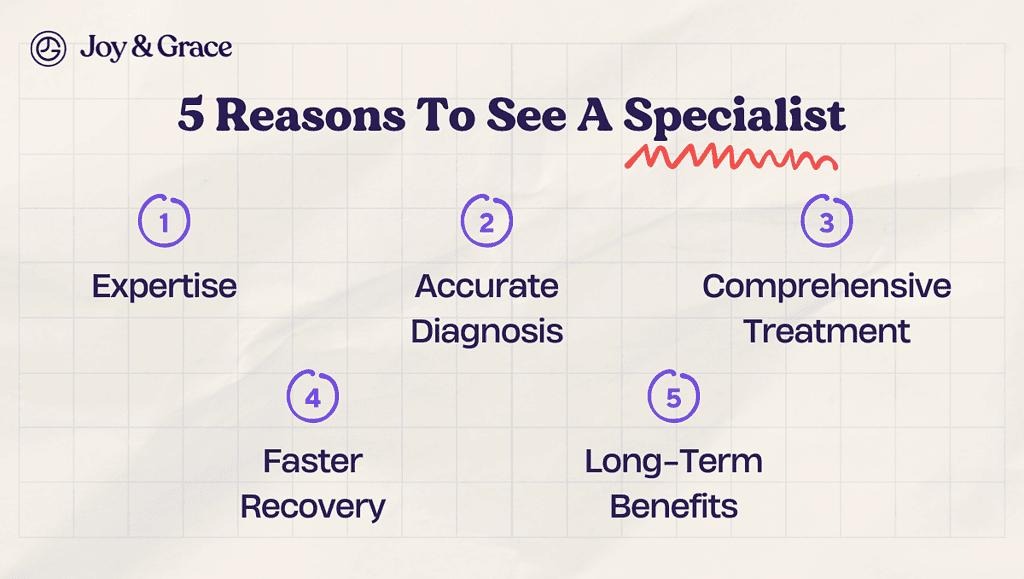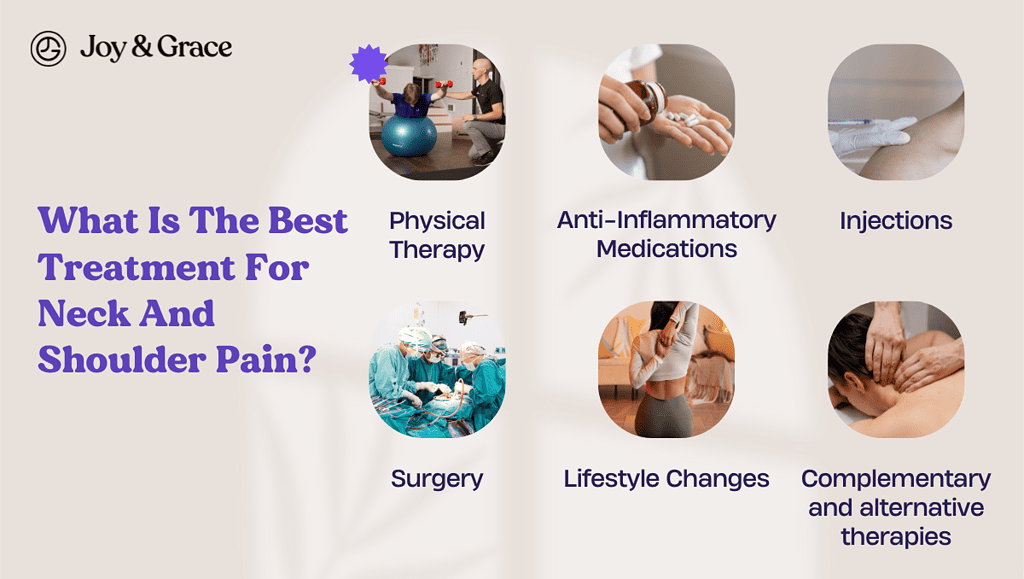Shoulder pain is a frustrating issue that can limit your daily activities, from getting dressed to carrying weights. It may also interfere with sleep, making it difficult for you to rest.
A simple visit to the right doctor can help ease the pain and provide a path to recovery. But with so many different types of doctors out there, whose help should you seek?
In this article, we will explore the best types of doctors who specialize in recognizing and treating shoulder pain. So, let us stand shoulder to shoulder and dive right in!
Who Is The Best Doctor For Shoulder Pain?

So, you are experiencing shoulder pain, and you are understandably worried about it. You want to get a professional opinion on your pain right away. But what type of doctor is the best for shoulder pain?
Well, with no other factors in mind, orthopedic surgeons are undoubtedly the most qualified doctors in evaluating and treating shoulder pain.
But not all cases of shoulder pain merit the absolute top-of-the-line specialized doctor possible. There are cases where other specialists might work just well enough, especially if they’re more accessible.
So, depending on the severity and overall shoulder function, options for shoulder pain evaluation include:
- Primary Care Physicians
- Orthopedic Surgeons
- Sports Medicine Specialists
- Physical Medicine and Rehabilitation Specialists, and
- Neurologists
Read on, as we have just the right recommendations for each scenario.
Who Should I See First For Shoulder Pain?
The first medical professional that you can see for shoulder pain is usually a Primary Care Physician (PCP). A PCP can diagnose and treat mild shoulder pain and refer you to a specialist if necessary.
Primary Care Physician

As mentioned, your primary care physician (PCP) is typically the first point of contact when you experience shoulder pain. PCPs may:
- Prescribe medications for pain relief
- Order imaging tests such as X-rays
- Provide advice on managing shoulder pain at home, and
- Refer you to secondary or tertiary care.
PCPs first ask you about your pain and your medical history. Then, they decide whether you can manage your symptoms at home or if you need to see an orthopedic specialist.
Do I Need A Referral To See A Specialist?
Whether you need a referral or not to see a specialist doctor depends on your insurance plan. Do you have an HMO plan or maybe a PPO? Find out more about medical insurance plans from this link.
If your insurance plan states that you need a referral from your PCP, you need to make the necessary appointments beforehand.
A stubborn shoulder pain that makes your daily life hard is usually a sign for a PCP to refer you to injury specialists (hint: we will talk about these specialists next).
Orthopedic Specialists
Orthopedic surgeons are medical doctors who specialize in disorders of the musculoskeletal system. This means they diagnose and treat injuries and diseases of the bones, muscles, tendons, and ligaments.
As we mentioned right in the beginning, orthopedic surgeons are the go-to doctors for shoulder pain. They deal with shoulder pain caused by:
- Arthritis
- Fractures
- Dislocations
- Rotator cuff tears
- Frozen shoulder syndrome, etc.
The good thing about orthopedics is that it is a broad specialty. This is why specialists choose to sub-specialize, meaning they focus on one area of the body. As a result, we have specialists who focus on the hand, shoulder specialists, those who focus on the hip joint, and so on.
Your orthopedic doctor may recommend non-surgical treatment options (such as physical therapy) or prescribe medications to relieve pain. In fact, according to this source, most sports injuries can be treated successfully without surgery.
Sometimes, though, surgery does become necessary. Orthopedic surgeons are specialists who perform minimally invasive or traditional open surgeries.
Sports Medicine Specialist

Sports medicine specialists are medical doctors with additional training in sports-related injuries. They often work with athletes and active individuals. They may also treat non-athletes who are coping with shoulder and neck pain.
Sports medicine specialists are experts on shoulder injuries that result from physical activity. Their area of expertise includes a wide range of injuries, such as:
- Ankle sprains
- Fractures
- Knee and shoulder injuries
- Tendon, ligament, and muscle injuries
- Exercise-induced asthma
- Heat illnesses
- Concussions and other head injuries
Depending on the problem, they may recommend non-surgical or surgical treatment options.
Physical Medicine And Rehabilitation Specialist
Physical Medicine and Rehabilitation (PM&R) specialists are doctors who help patients recover from injuries that affect their mobility, function, and quality of life.
PM&R specialists use non-surgical treatments to help relieve pain and improve function. These treatments involve the following:
- Therapeutic exercise
- Prosthetics/orthotics
- Pain medications
- EMG (electromyography) and NCS (nerve conduction studies)
- Soft tissue, joint and spine injections
- Musculoskeletal ultrasound
- Spasticity management methods, etc.
PM&R specialists strive to maximize the independence of their patients and improve their quality of life. They do come in handy for joint pain as well! Shoulder pain is certainly no exception.
PM&R specialists are also known as physiatrists and should not be confused with physical therapists. The latter are not medical doctors and cannot prescribe medications.
When Should I See A Neurologist For Shoulder Pain?

You might be referred to a neurologist if your shoulder pain is accompanied by neurological symptoms. A neurologist is a doctor who deals with diseases that affect the central and peripheral nervous systems.
The typical neurological symptoms in your shoulder, arm, and hands include:
- Weakness,
- Numbness, and
- Tingling.
The shoulder is a region that contains a lot of nerve bundles and connections. When something is wrong with the nerves in the shoulder, you may get symptoms below the shoulder as well.
This is why you should never underestimate the potential danger of shoulder pain. Consider seeing a neurologist if the symptoms above appear.
When Should I See A Doctor About Shoulder Pain?
You may sometimes be confused about whether you should see a doctor or not for shoulder pain. Your friend or colleague told you it is nothing, so you might think, “Phew, maybe the pain will just go away on its own, right?” Well, unfortunately, not. If you experience shoulder pain, we advise you to seek medical care. Below, we present some red flags and alarming signs of shoulder pain.
5 Reasons To See A Specialist

If you're looking for the best shoulder pain treatment possible, you know by now that specialists are your best bet. Here are just some of the benefits of taking just a tiny bit of your time to see your doctor:
- Expertise. Specialists are physicians who have dedicated their practice to a specific area of medicine. They have a deep understanding of the musculoskeletal system and specialize in treating shoulder conditions.
- Accurate Diagnosis. An accurate diagnosis is key to effective treatment. A specialist can use advanced imaging diagnostic tools to identify the exact cause of your shoulder pain. This can help them tailor a treatment plan specific to your needs.
- Comprehensive Treatment. Specialists are trained to provide comprehensive and personalized treatment options. These options include nonsurgical treatment options, physical therapy, and surgery.
- Faster Recovery. A specialist can help you recover faster by providing the most effective treatment plan for your shoulder pain. They can also offer advice on exercises and other lifestyle changes that can prevent future shoulder injuries.
- Long-Term Benefits. Seeing a specialist for your shoulder pain can provide long-term benefits.
When Is Shoulder Pain Serious?
Paying a visit to your doctor is the best and smartest thing you can do when you are experiencing worrying shoulder pain. You should consider scheduling an appointment with your doctor if:
- Your pain persists for over a week.
- Your pain affects your shoulder function.
- Other symptoms, such as chest discomfort, accompany your pain.
- If chest pain, breathlessness, sweating, and dizziness go with your shoulder pain, seek care immediately! These might be signs of a more serious problem, like a heart attack.
- Your pain results from an injury or trauma.
- Your pain affects your quality of life.
Warning Signs: What Are Red Flags For Shoulder Pain?
It is important for you to understand the so-called red flags for shoulder pain. These red flags are warning signs of a serious underlying problem. We suggest you seek urgent care if:
- You have severe swelling or bruising around the shoulder joint. You could have an injury and inflammation in this region.
- You feel severe pain. Severe pain could indicate a torn rotator cuff injury or shoulder dislocation.
- You experience chest pain, shortness of breath, or nausea. These may be signs of a heart attack. Act quickly!
- You notice redness, swelling, or warmth around the joint. These might be signs of an infection happening around the joint.
- You have numbness, tingling, weakness, and stings. Your nerves running along your shoulder may be compressed or damaged.
Diagnosis And Tests: What Will A Doctor Do For Shoulder Pain?

Upon entering the doctor’s office, your doctor will first evaluate your symptoms and medical history. Your doctor may then perform a physical examination of your shoulder and test your range of motion, strength, and reflexes.
Specific tests are used to reproduce symptoms and signs that would help doctors identify the pathology. In addition to the history and physical exam, you may need to go through several imaging tests that assess your shoulder pain.
With the right diagnosis, you can get the treatment you need to relieve your shoulder pain and get back to living your life with joy and grace (as we try to do here at Joy & Grace).
Treatment Options: How Do Doctors Fix Shoulder Pain?
Shoulder pain can be debilitating, making even the simplest tasks seem difficult. Various treatments are available, depending on the root cause of the pain. So, what exactly will your doctor do to get rid of the pain quickly? Is there something you can do at home as well? Let us find out.
What Is The Best Treatment For Neck And Shoulder Pain?

Some of the best and most effective treatments for shoulder and neck pain are:
- Physical Therapy. Physical therapy is often recommended for shoulder pain. This treatment helps to strengthen the muscles surrounding the shoulder, reducing the stress on the joint.
- Anti-Inflammatory Medications. Anti-inflammatory medications are often used to reduce the pain and inflammation associated with shoulder injuries. You can take these medications orally or applied as a topical cream.
- Injections. Corticosteroid injections can be administered directly into the shoulder joint. They reduce inflammation and pain. Your medical provider may administer corticosteroids under ultrasound guidance for optimal accuracy.
- Surgery. In some cases, surgery may be necessary to relieve shoulder pain. Shoulder surgery can repair torn ligaments, remove inflamed tissue, or even replace the entire joint in severe cases.
- Lifestyle Changes. If you have shoulder pain, you should try to make some changes to the way you live your daily life. Lose some excess weight, avoid strenuous activity, and fix your posture to see a positive difference.
- Complementary and alternative therapies. These include acupuncture and massage care. Evidence for the effectiveness of these treatments is limited.
What Is The Best Painkiller For Shoulder And Arm Pain?
When it comes to medications, there are several options that can help ease shoulder pain. Nonsteroidal anti-inflammatory drugs (NSAIDs) can help reduce the inflammation and swelling associated with the pain. NSAIDs comprise popular drugs such as aspirin, ibuprofen, and naproxen.
Acetaminophen, a widely used analgesic, can also help effectively reduce pain. If your shoulder pain is severe, your doctor may prescribe stronger medications, such as opioids.
Can Shoulder Pain Be Cured Without Surgery?
There are cases where surgery may be necessary for shoulder pain. This is especially true when the condition causes significant disability or limitations in everyday activities.
But the good news is that shoulder pain can often be cured without surgery! This can be achieved only in cooperation with a healthcare provider.
Home Remedies

You may be pleased to hear there are a few ways to deal with shoulder pain at home. Try out these methods to temporarily relieve the pain and feel better:
- Rest. Resting the affected area as much as possible can help reduce inflammation and pain. Avoid any activities that aggravate the shoulder pain.
- Ice. Applying ice to the shoulder for 15-20 minutes at a time can help reduce inflammation and pain.
- Heat. Applying heat to the shoulder can also help relieve pain. Try using a warm compress/heating pad or taking a warm shower. Heat is most effective when the inflammation in your shoulder is not high.
- Massage. A gentle massage of the affected area can help relieve tension and reduce pain.
- Exercise. Strengthening exercises can help rebuild the muscles in the shoulder and reduce pain. You should exercise cautiously, only after the pain has eased off a bit. Talk to your doctor about which exercises are best for you.
Takeaway
The best doctors for shoulder pain are:
- Orthopedic surgeons
- Primary Care physicians
- Sports Medicine specialists
- Physical Medicine and Rehabilitation specialists
- Neurologists
Your doctor will find the cause of your pain by:
- Taking your history,
- Performing a physical exam, and
- Recommending imaging techniques.
The most effective treatment options for shoulder pain are:
- Physical therapy,
- Anti-inflammatory medications, and
- Corticosteroid injections.
In some cases, surgery may be necessary to relieve shoulder pain.
You can deal with shoulder pain at home by trying out methods that temporarily relieve the pain.















